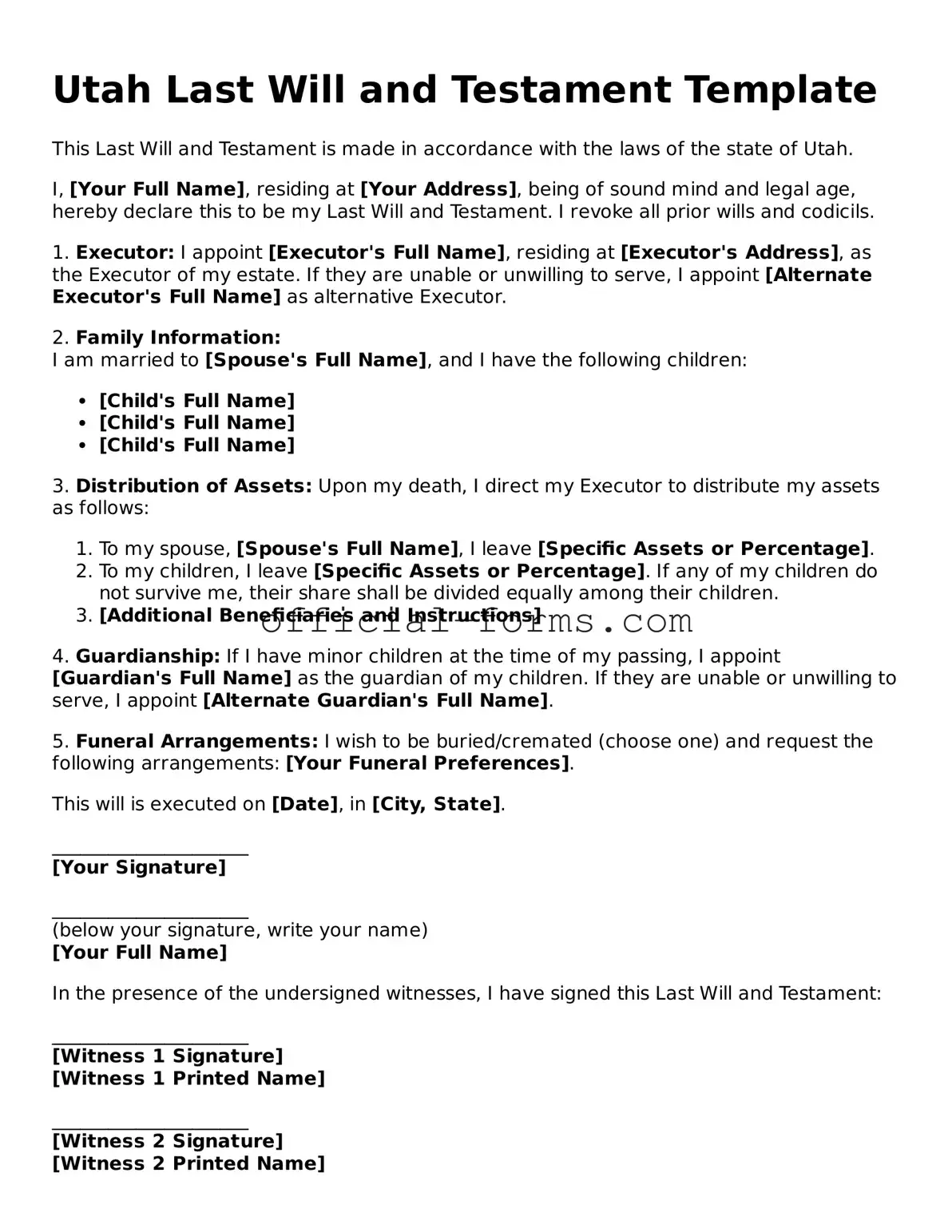When preparing a Last Will and Testament in Utah, individuals often make mistakes that can lead to confusion or complications later. One common error is failing to clearly identify beneficiaries. It’s essential to specify who will inherit your assets. Ambiguities can lead to disputes among family members, which can be emotionally taxing and financially draining.
Another mistake is neglecting to update the will after significant life changes. Events such as marriage, divorce, or the birth of a child should prompt a review of your will. Failing to make these updates can result in unintended distributions that do not reflect your current wishes.
Many people also overlook the importance of having the will properly witnessed. In Utah, a will must be signed by at least two witnesses who are not beneficiaries. If this requirement is not met, the will may be deemed invalid, leaving your estate to be distributed according to state laws rather than your wishes.
Additionally, some individuals mistakenly assume that a handwritten will is sufficient. While Utah does allow holographic wills (those written entirely by hand), they must still meet specific criteria. Relying on a handwritten document without proper guidance can lead to complications.
Another frequent oversight is not including a residuary clause. This clause addresses what happens to any assets not specifically mentioned in the will. Without it, there may be confusion about how to handle these assets, potentially leading to disputes among heirs.
People often forget to consider the appointment of an executor. Choosing someone to oversee the distribution of your estate is crucial. If you do not name an executor, the court will appoint one, which may not align with your preferences.
Some individuals fail to account for debts and taxes in their will. It’s important to specify how debts should be settled before distributing assets. Ignoring this can leave your beneficiaries with unexpected financial burdens.
Another common error is not communicating your wishes to your family. A will can only do so much if your loved ones are unaware of its contents. Discussing your plans can help ensure that your wishes are honored and can reduce the likelihood of disputes.
Lastly, many people underestimate the importance of legal advice. While it is possible to fill out a will form on your own, consulting with a legal professional can provide valuable insights. They can help identify potential pitfalls and ensure that your will complies with all legal requirements.

